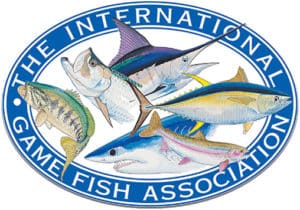Date: December 26th, 2024
Location: Tamarindo, Costa Rica
Catch: 1 sailfish, 1 Blue Marlin
Boat: 38 ft. Riviera
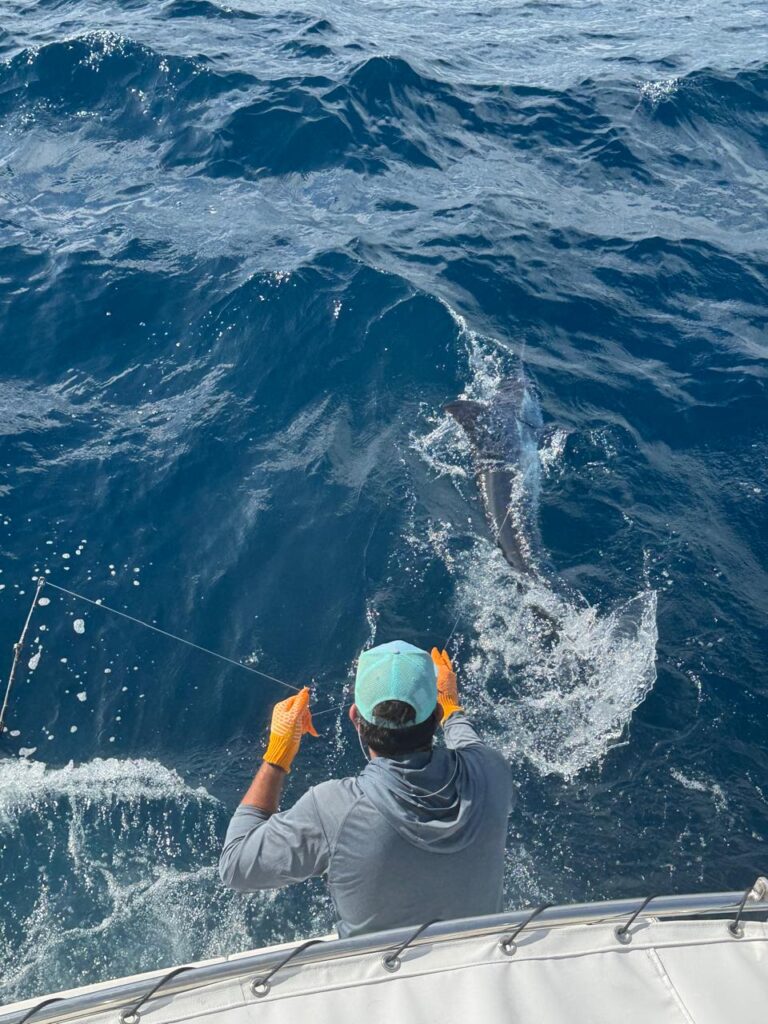
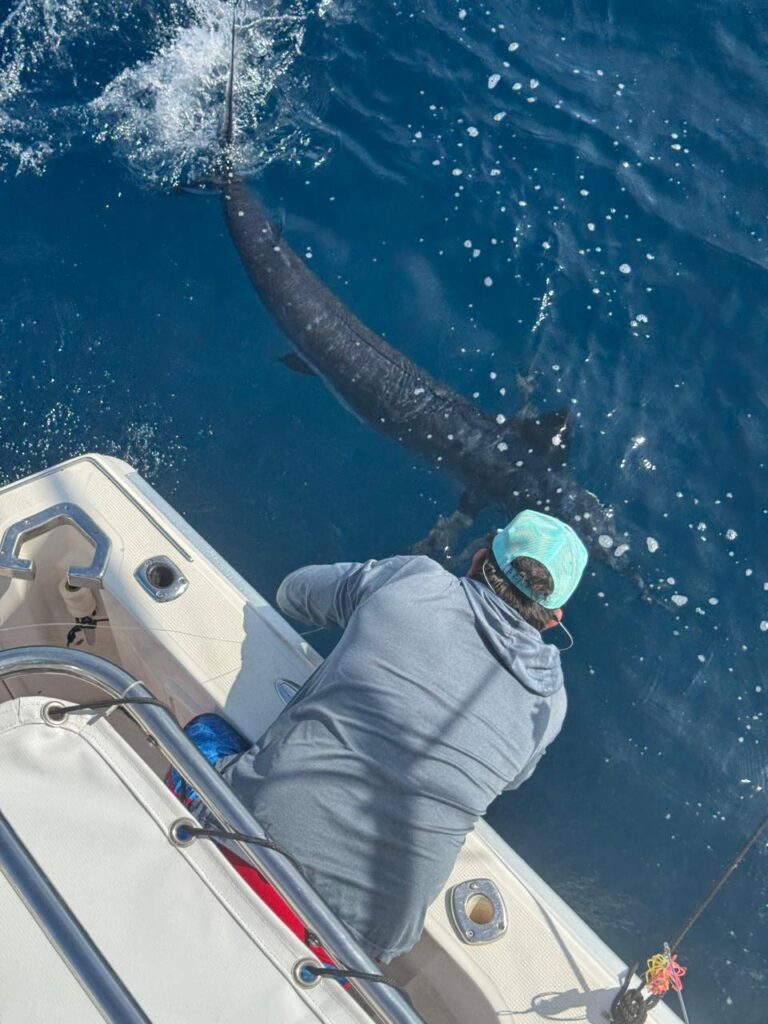
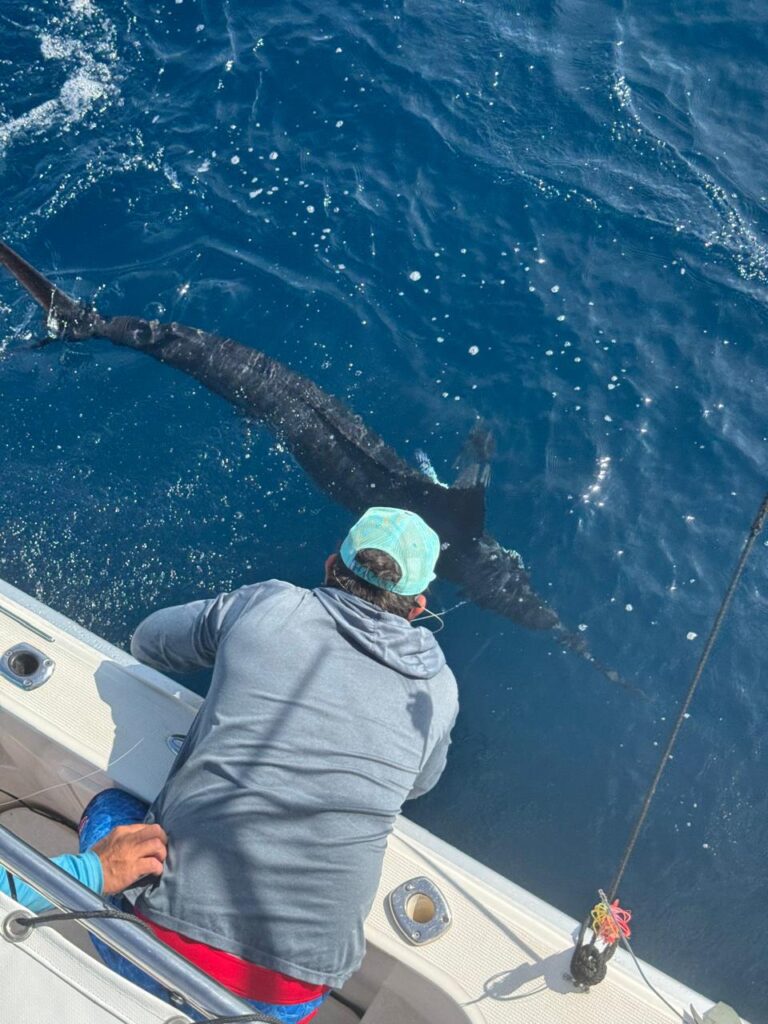
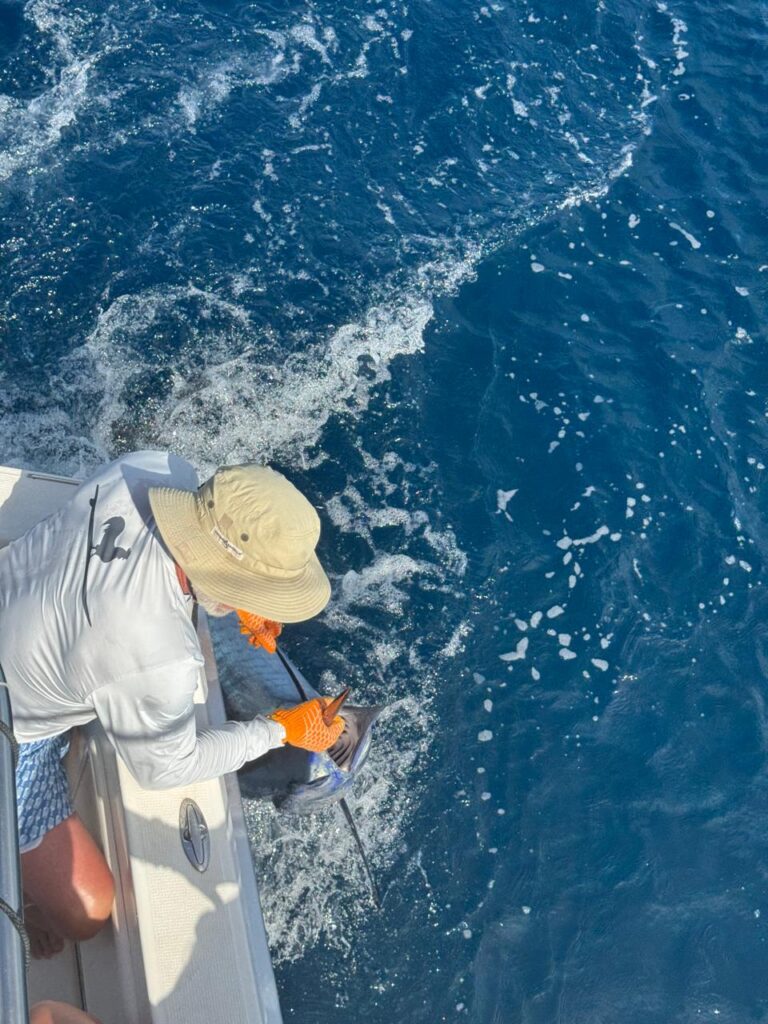
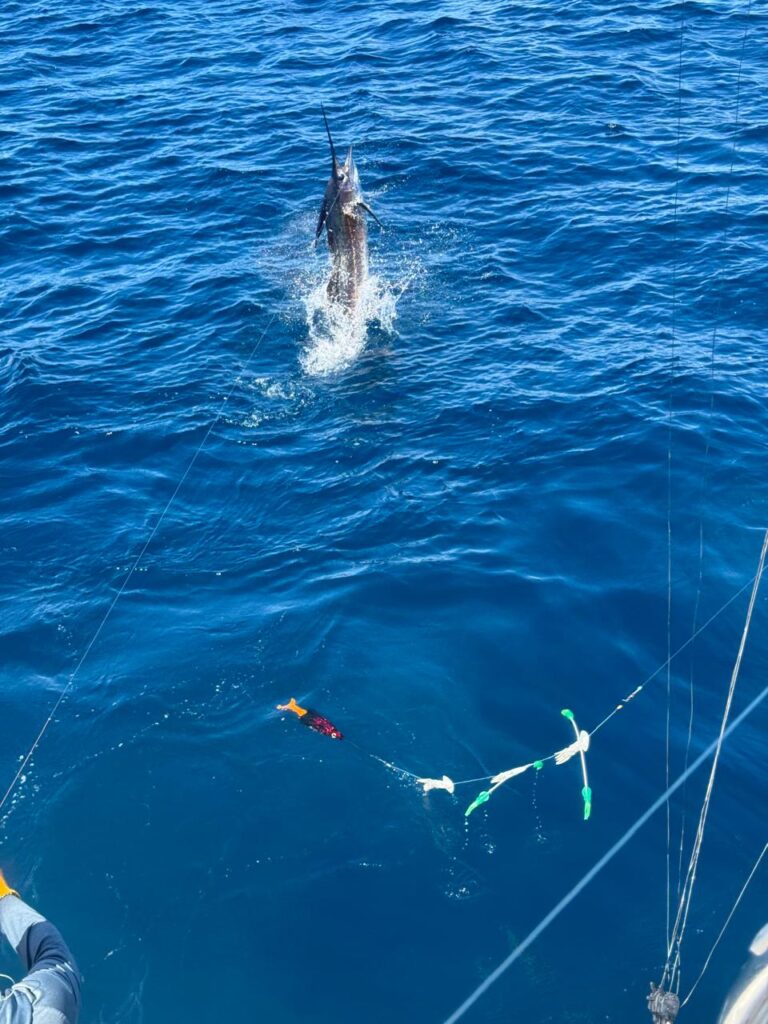
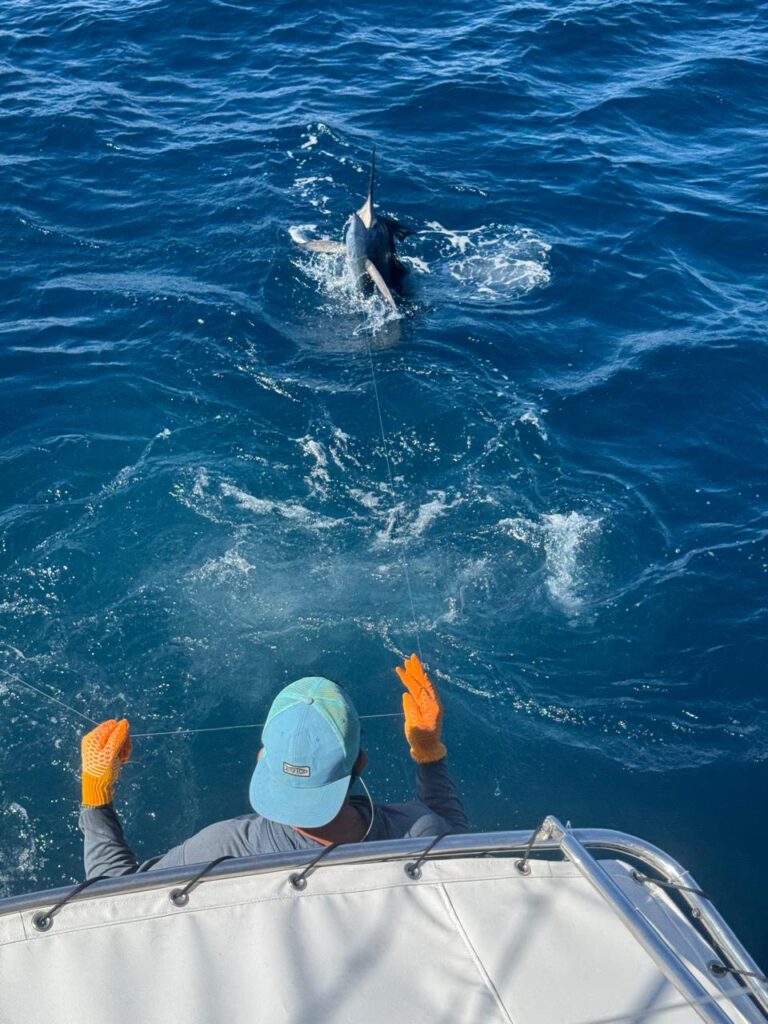
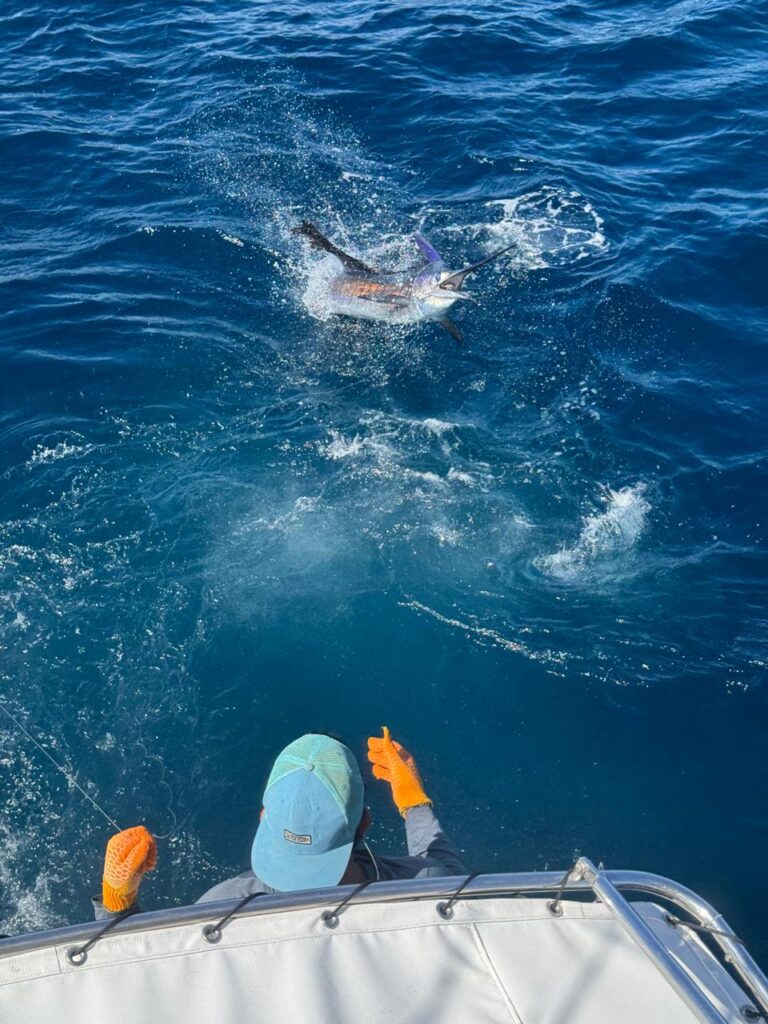
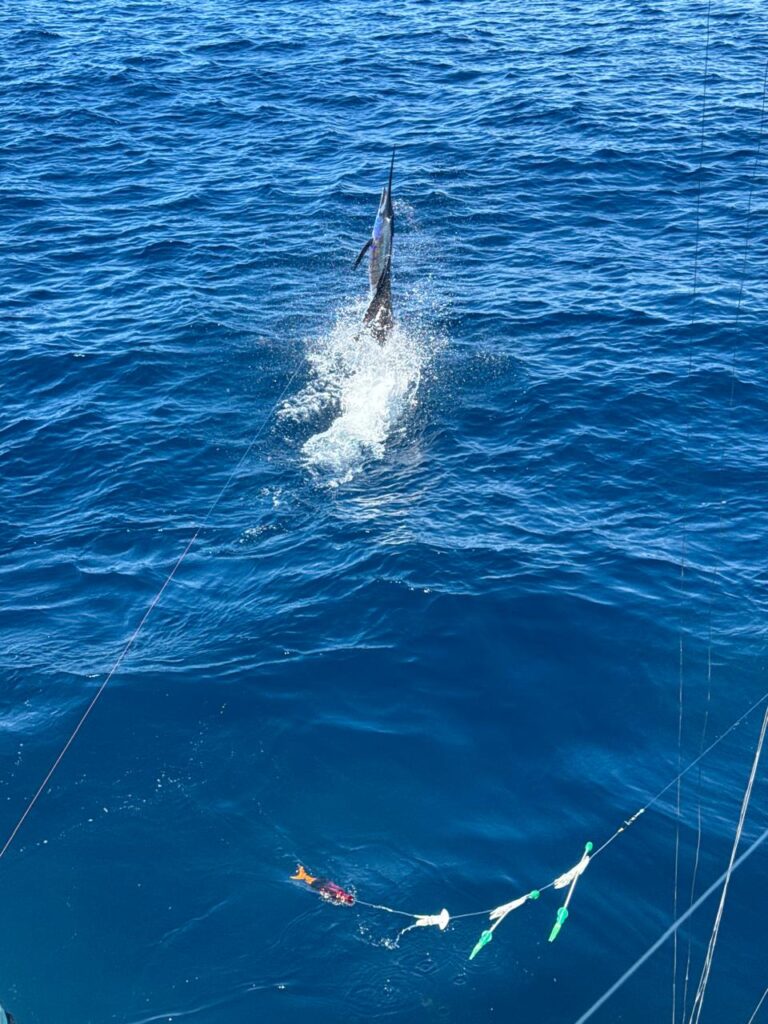
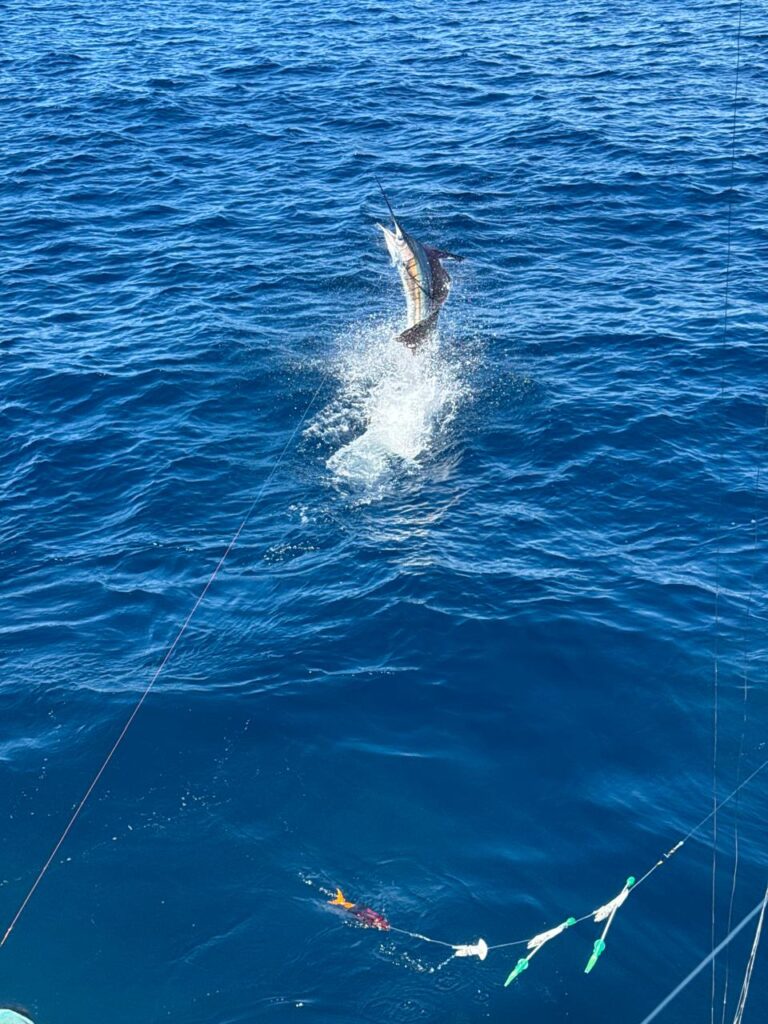
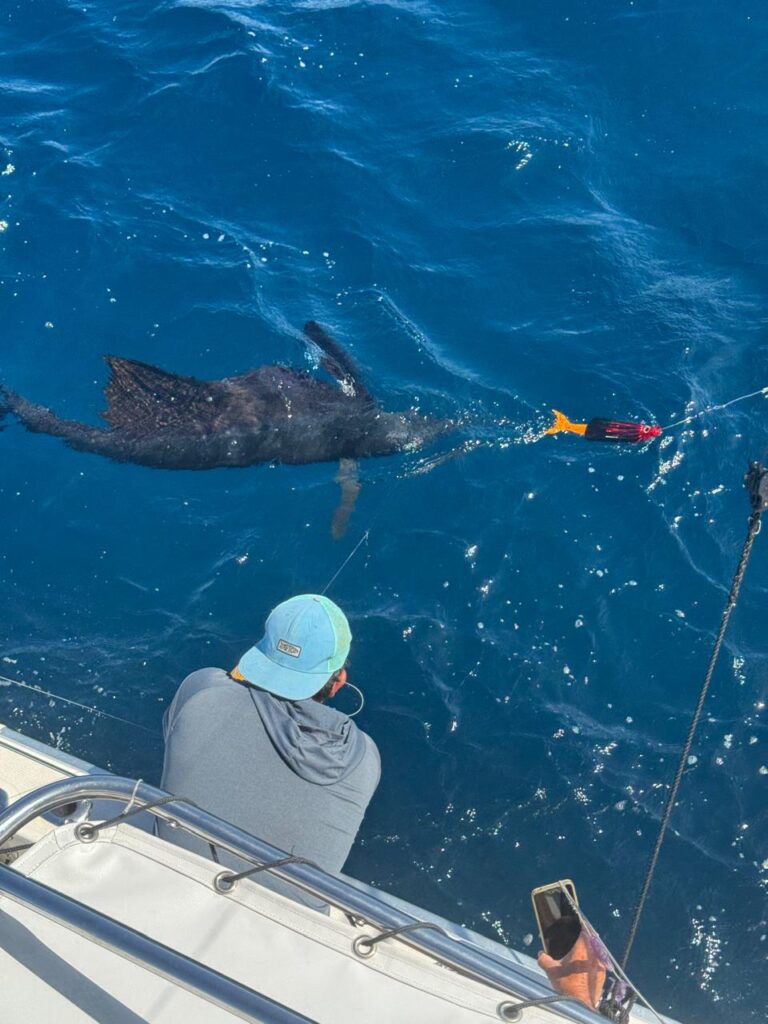
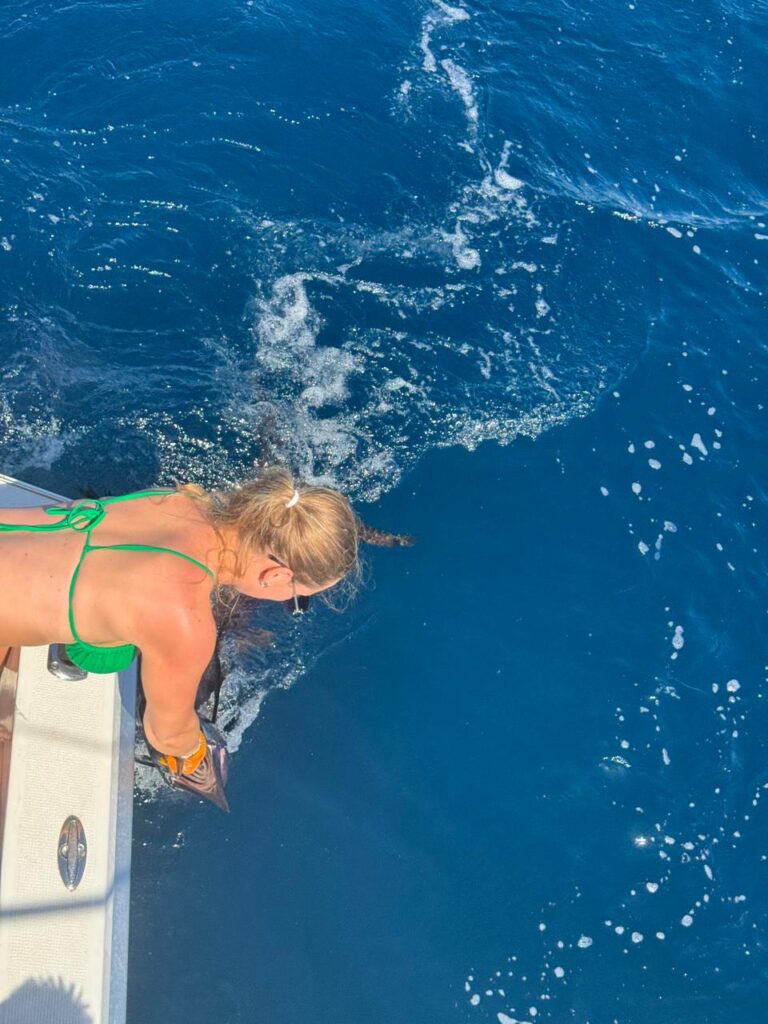
Date: December 26th, 2024
Location: Tamarindo, Costa Rica
Catch: 1 sailfish, 1 Blue Marlin
Boat: 38 ft. Riviera











by Jon Malavasi
Costa Rica, a country known for its stunning biodiversity and commitment to environmental conservation, has long recognized the importance of preserving its marine resources. The practice of Fishing Conservation in Costa Rica is not just about protecting fish species; it’s about sustaining the health of the entire marine ecosystem and the livelihoods that depend on it. In this comprehensive guide, we delve into the various sustainable practices implemented by fishing charters, local organizations, and the government to promote marine conservation. We will also explore how individuals and visitors can contribute to these efforts and why it is crucial for the future of Costa Rica’s natural heritage.
The oceans around Costa Rica are teeming with life, hosting an array of species from the smallest plankton to the largest whales. This rich marine life attracts thousands of tourists each year, many of whom come with the hope of experiencing the thrill of catching a marlin, sailfish, or tuna. However, the impact of fishing on the environment can be profound if not managed responsibly. This is where fishing conservation comes into play—a set of practices and regulations designed to maintain fish populations and their habitats at healthy levels.
CR Fishing Charters is at the forefront of the conservation movement, adopting eco-friendly fishing techniques and supporting scientific research. By choosing responsible fishing charters, anglers can ensure their pursuits do not harm the ecosystem. Furthermore, it’s not just about the fishing industry; conservation is a collective responsibility that involves the participation of all stakeholders, including tourists, local communities, and policymakers.
In Costa Rica, sustainable fishing practices are the cornerstone of marine conservation. These practices ensure that fishing activities are conducted in a manner that minimizes environmental impact and fosters the long-term viability of fish populations. Regulations such as catch-and-release policies, size limits, and seasonal closures are enforced to protect overfished species and critical breeding grounds. Moreover, the use of sustainable gear and techniques like circle hooks and deep-sea release methods significantly reduce bycatch and the mortality rate of non-target species.
Fishing charters in Costa Rica are increasingly adopting eco-friendly practices. These include using biodegradable line, engaging in proper waste disposal, and educating anglers about the importance of conservation. By participating in these charters, tourists can enjoy the sport of fishing while contributing to the preservation of Costa Rica’s marine environment.
Collaboration between fishing charters, local organizations, and researchers is essential for effective conservation. Data collection and sharing, habitat restoration projects, and community outreach programs are just a few examples of how these partnerships contribute to the protection of marine biodiversity. Such collaborative efforts also help in monitoring the health of fish stocks and developing adaptive management strategies.
Government policies play a critical role in fishing conservation. In Costa Rica, marine protected areas (MPAs) have been established to safeguard key habitats from overfishing and other harmful activities. These MPAs provide a sanctuary for marine life, allowing populations to recover and thrive. Additionally, international agreements and collaborations enhance the effectiveness of local conservation efforts by addressing issues such as illegal, unreported, and unregulated (IUU) fishing.
Research and technology are invaluable tools in the fight for marine conservation. Advances in satellite tracking, genetic analysis, and population modeling provide insights into the behavior and dynamics of fish populations. This scientific knowledge informs policy decisions and helps refine conservation strategies to be more effective and targeted.
Education is a powerful agent of change in the realm of conservation. By raising awareness about the importance of sustainable fishing and the threats to marine life, individuals are empowered to make informed choices. Community engagement initiatives also encourage local participation in conservation projects, fostering a sense of stewardship for the natural resources that sustain them.
Visitors and locals alike can play a part in fishing conservation in Costa Rica. Choosing to support eco-friendly businesses, adhering to catch-and-release guidelines, and spreading awareness are simple yet impactful ways to contribute. Additionally, volunteering for beach cleanups or donating to conservation organizations are direct actions that make a difference.
Responsible tourism is about making choices that benefit the environment and local communities. Tourists who engage in responsible practices, such as respecting no-take zones and minimizing their carbon footprint, help to sustain Costa Rica’s natural beauty for future generations.
Every economic choice made by consumers has the potential to support conservation. Purchasing sustainable seafood, investing in businesses that prioritize eco-friendly practices, and advocating for responsible fishing policies are ways in which individuals can drive positive change.
In conclusion, Fishing Conservation in Costa Rica is a multifaceted endeavor that requires the commitment and collaboration of all sectors of society. By understanding the importance of sustainable practices, supporting the right organizations, and making responsible choices, we can all contribute to the preservation of Costa Rica’s marine life. The future of this rich ecosystem depends on our actions today, and together, we can ensure that Costa Rica’s waters remain vibrant and teeming with life for generations to come.
by Jon Malavasi
Embarking on a fishing adventure can be transformative, offering a blend of excitement, tranquility, and the thrill of the catch. Selecting the right charter service is paramount to ensuring a memorable and rewarding experience. CR Fishing Charters has emerged as a leader in the industry, providing exceptional angling adventures that cater to both novice and seasoned anglers. This blog post delves into the myriad of reasons why CR Fishing Charters should be your go-to choice for your next fishing journey.
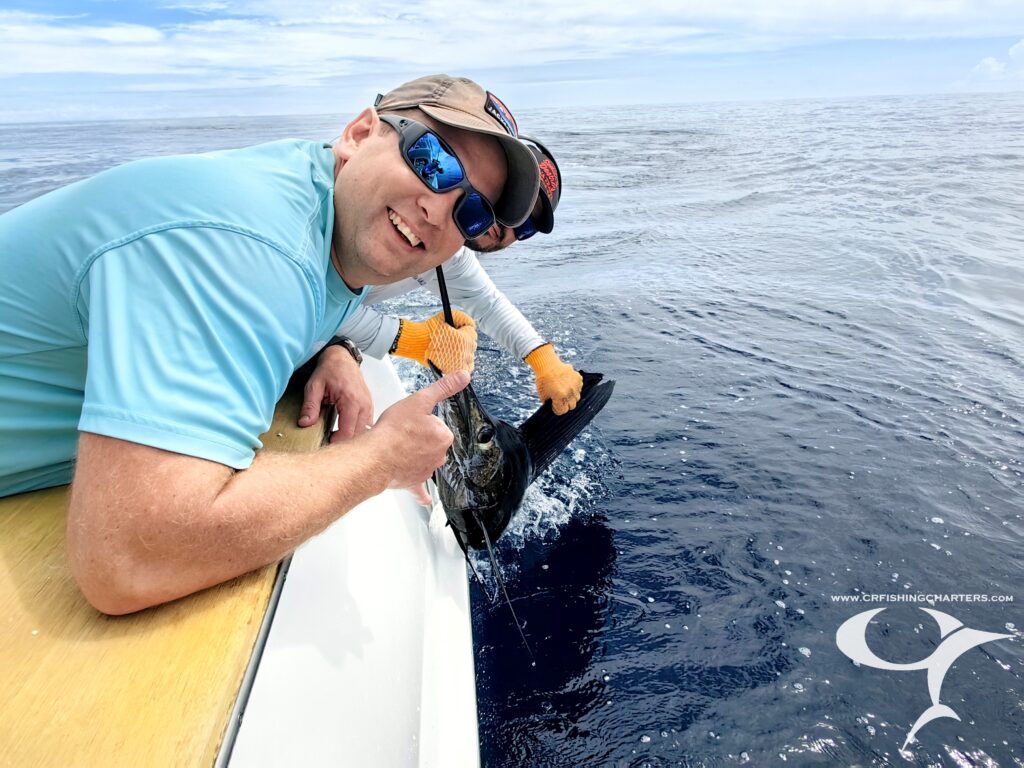
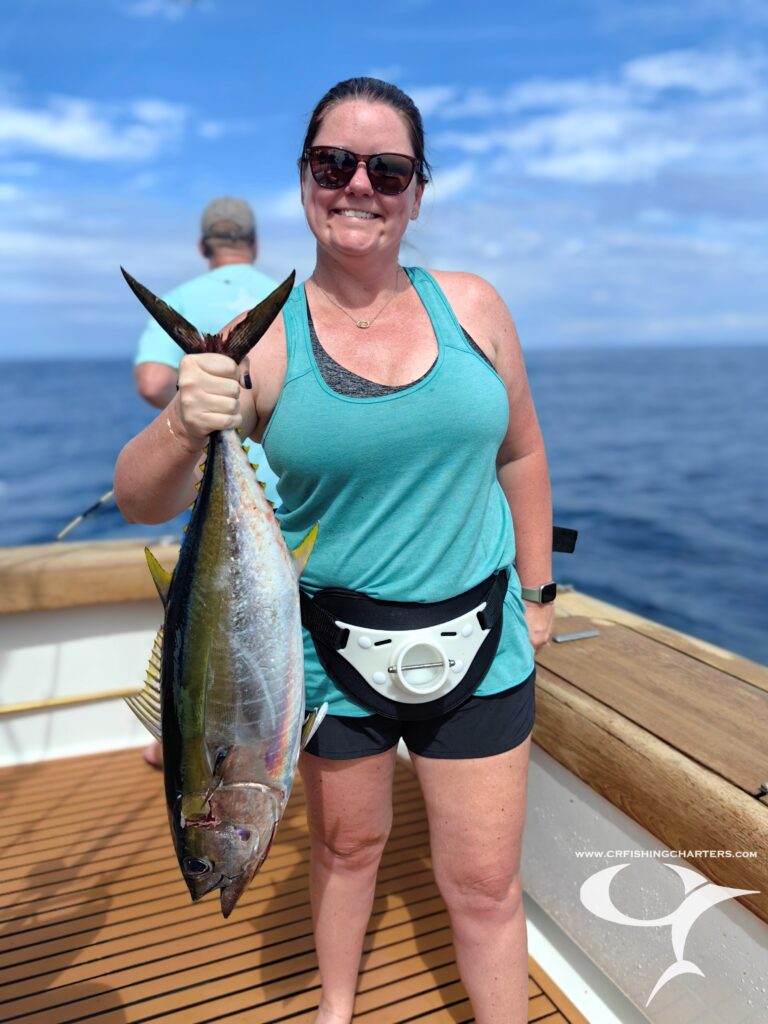
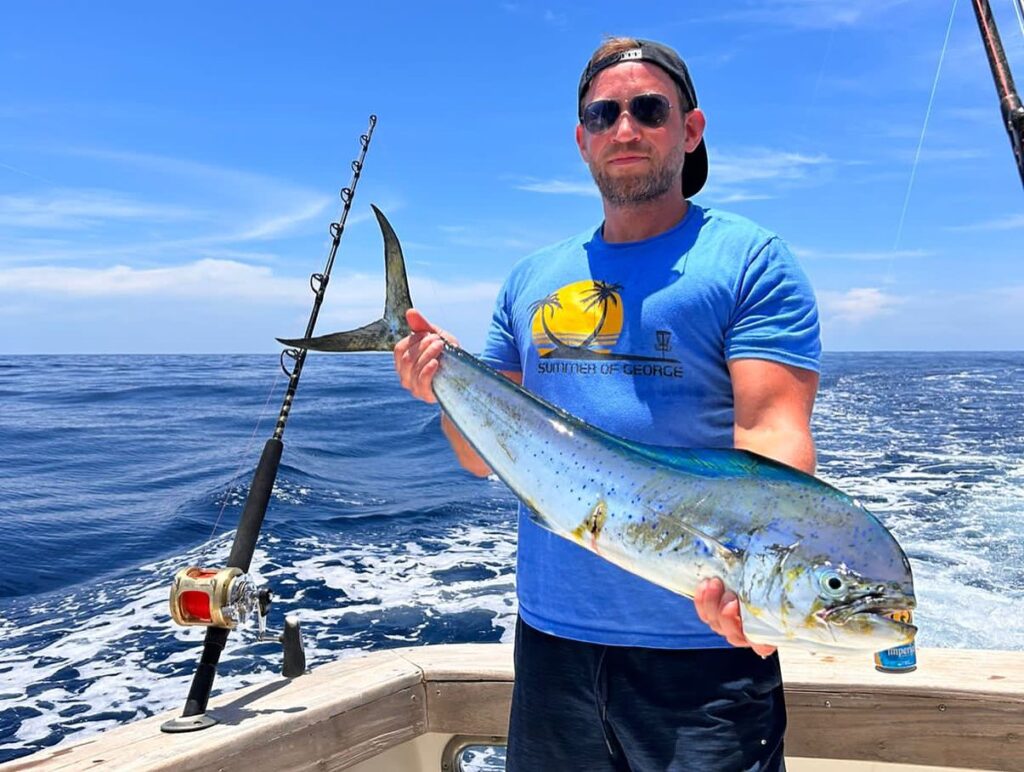
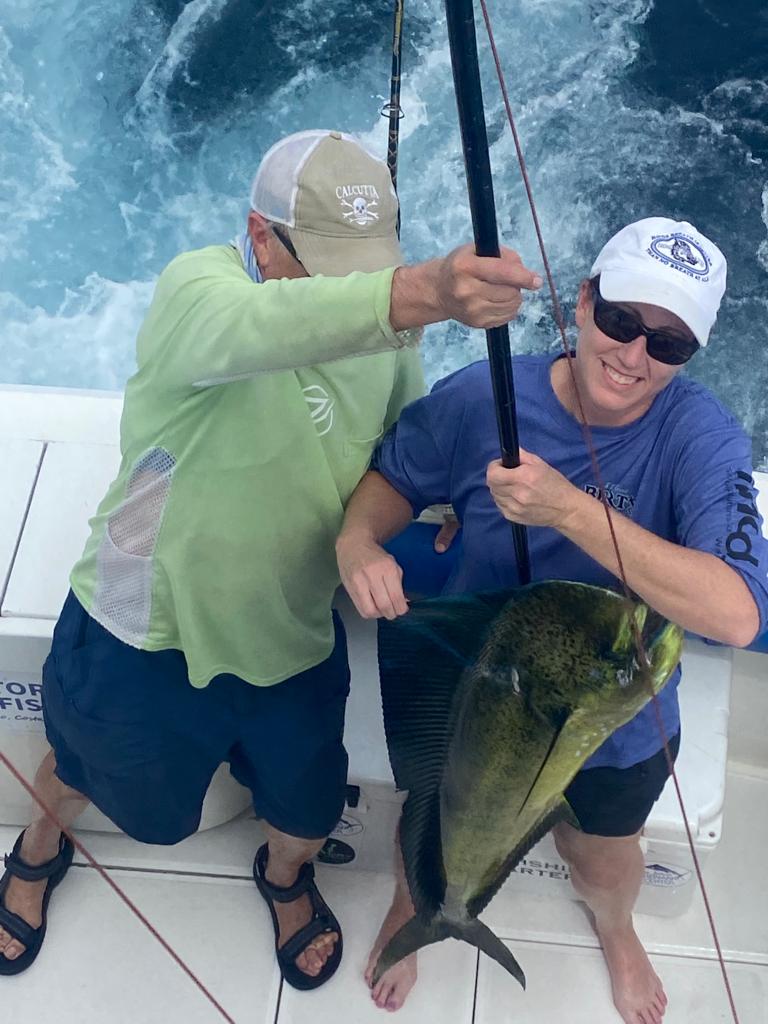
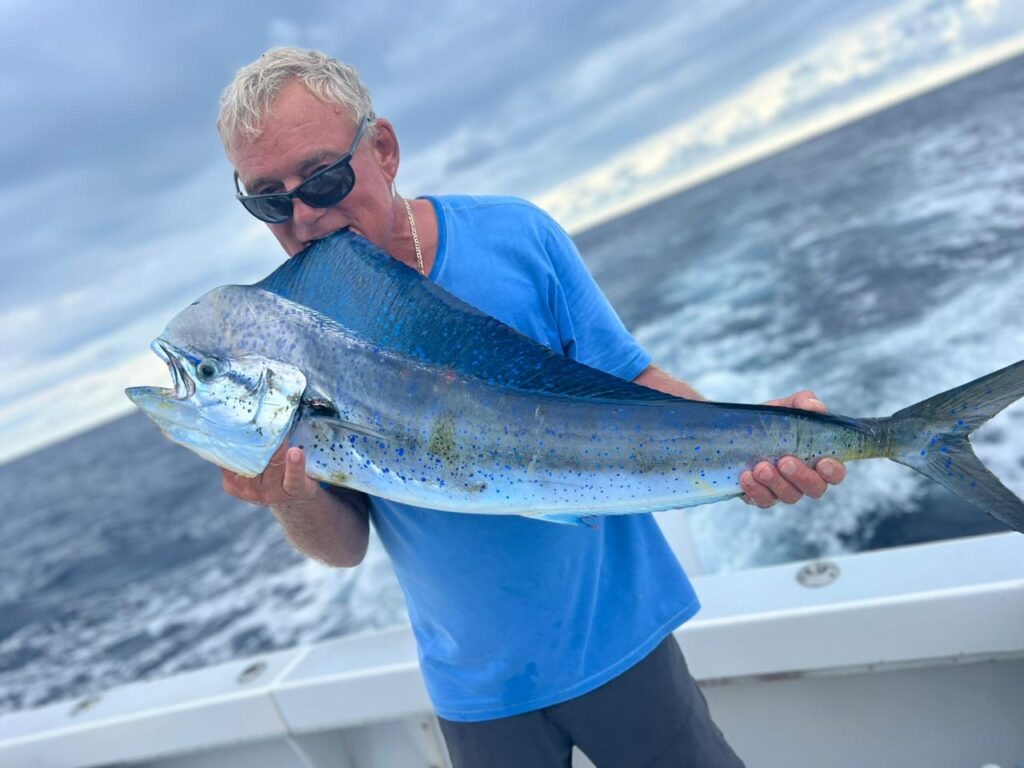
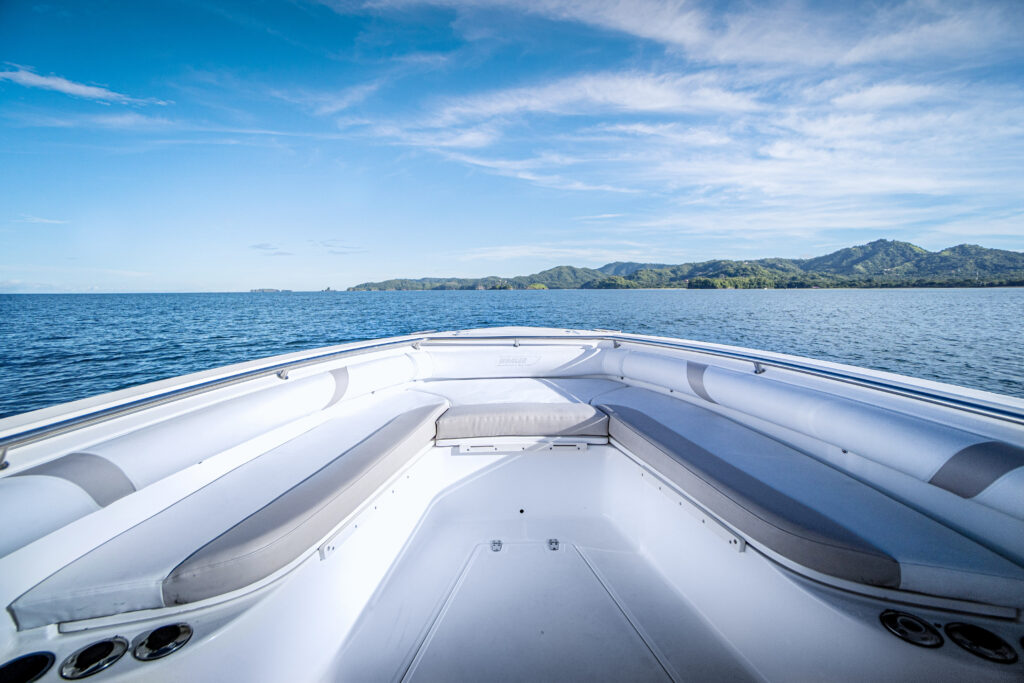
One of the most significant advantages of choosing CR Fishing Charters is the deep local knowledge that their experienced guides possess. These experts have spent countless hours on the water, understanding the behaviors of different fish species and the best times and places to find them. This insider knowledge is invaluable for anyone looking to maximize their chances of a successful fishing trip.
Moreover, CR Fishing Charters prides itself on its team of professional guides. These individuals are not only adept at navigating the best fishing spots but also prioritize safety and customer satisfaction. They are patient instructors, skilled in teaching the art of fishing to newcomers, and are equally capable of providing advanced techniques to more experienced anglers.
Another reason to select CR Fishing Charters is the quality of their boats and equipment. The charter service boasts a fleet of top-of-the-line boats that are well-maintained and equipped with the latest technology. This ensures a comfortable and safe experience on the water. Additionally, they provide high-quality fishing gear, including rods, reels, and tackle, which can make a significant difference in your fishing success.
The right equipment is crucial, especially when targeting specific fish species. CR Fishing Charters understands this and offers gear that is suitable for various types of fishing, whether you’re after inshore species or deep-sea giants. Their commitment to providing the best tools for the job reflects their dedication to making your fishing trip as productive as possible.
CR Fishing Charters is not only passionate about delivering a superior fishing experience but also about preserving the marine environment. They adhere to sustainable fishing practices that ensure the health and longevity of fish populations. This includes following catch and release guidelines for certain species and respecting local fishing regulations.
By choosing CR Fishing Charters, you’re supporting a company that values the conservation of marine ecosystems. This responsible approach to fishing is essential for maintaining the natural balance and ensuring that future generations can also enjoy the thrill of the catch.
In conclusion, CR Fishing Charters stands out for its local expertise, premium quality boats and equipment, and commitment to sustainable fishing practices. These factors, among others, make it an excellent choice for anyone looking to experience an unforgettable fishing adventure. Whether you’re a beginner or a seasoned pro, CR Fishing Charters offers an unparalleled experience that caters to all levels of skill and interest.
by Jon Malavasi
Costa Rica, a country known for its rich biodiversity and stunning coastlines, offers some of the most exhilarating fishing experiences in the world. Anglers from all corners of the globe are drawn to the promise of battling giant marlins, sailfish, and roosterfish in these tropical waters. Understanding the best time to fish in Costa Rica is key to planning a successful trip, as various species have different peak seasons influenced by the country’s unique climatic patterns.
Costa Rica’s fishing calendar is diverse, with both the Pacific and Caribbean coasts providing year-round opportunities. However, to maximize your chances of a fruitful catch, it’s essential to align your visit with the movements and feeding habits of your targeted species. The following sections delve into the optimal fishing times for different types of fish, the regional climate considerations, and the benefits of choosing the right season for your fishing adventure.
Whether you’re a seasoned angler or a casual fisher looking to enjoy a day on the water, this comprehensive guide will assist you in determining the best time to fish in Costa Rica. By the end of this article, you’ll be equipped with the knowledge to plan your fishing trip for optimal conditions, ensuring a memorable and potentially record-breaking experience.
The Pacific Coast of Costa Rica is celebrated for its rich marine life and is a hotspot for sportfishing. The warm waters here are teeming with sought-after species like marlin, sailfish, and dorado. The peak season for marlin runs from November to April, with sailfish numbers spiking from December through May. Dorado, also known as mahi-mahi, are most abundant from May to October, coinciding with the rainy season when debris in the water attracts these colorful predators.
Anglers targeting roosterfish will find the best conditions from June to early September. This is when the inshore waters are at their calmest, making it easier to pursue these powerful fish. Snapper and grouper are also more active during this period, providing ample opportunities for a successful catch.
On the Caribbean side of Costa Rica, the fishing landscape changes dramatically. Tarpon and snook are the stars here, with the best tarpon fishing occurring from January to May and September to November. Snook, on the other hand, can be caught throughout the year, but the highest chances of landing a trophy fish are during the dry season, from February to April and September to October.
It’s important to note that the Caribbean coast experiences a different weather pattern than the Pacific, with a more distinct wet season that can affect fishing conditions. Anglers should pay close attention to weather forecasts and local advice when planning their trips to this region.
Costa Rica’s climate plays a significant role in determining the best time to fish. The country has two main seasons: the dry season (December to April) and the wet season (May to November). While the dry season generally offers more predictable weather and calmer seas, the wet season can bring heavy rains, especially in the afternoons, which can impact fishing plans.
However, the wet season also has its advantages. It’s during this time that the nutrient-rich run-off from the rivers into the ocean creates ideal feeding grounds for many species. This can lead to some of the most exciting fishing of the year, with the possibility of larger and more abundant catches.
When planning your fishing trip, consider the type of experience you’re seeking. If you prefer more stable weather conditions and don’t mind the potential for larger crowds, the dry season may be the best choice. For those willing to brave the occasional downpour for the chance at a more bountiful catch, the wet season could be the perfect time to visit.
To make the most of your fishing adventure in Costa Rica, it’s not just about choosing the right season. Working with experienced fishing charters like CR Fishing Charters can enhance your experience significantly. These experts have intimate knowledge of the local waters, fish behavior, and the most effective techniques for each season. They can guide you to the best spots and provide the necessary equipment to increase your chances of a successful outing.
Additionally, consider the moon phases and tides when planning your trip. These natural cycles can affect fish behavior, with some anglers swearing by the increased activity during full and new moons. Tides also play a role, particularly for inshore fishing, where the changing water levels can influence where and how fish feed.
Finally, remember to respect the local regulations and practice sustainable fishing methods. Costa Rica is committed to conservation, and by following catch-and-release practices for certain species, you’re contributing to the preservation of the country’s marine biodiversity for future generations of anglers to enjoy.
In conclusion, the best time to fish in Costa Rica varies depending on the species you’re targeting and the coast you’re visiting. By understanding the seasonal patterns and regional climate considerations, you can plan your trip for the optimal fishing conditions. Remember to utilize the expertise of local charters, consider the lunar and tidal influences, and always fish responsibly.
With this guide in hand, you’re well on your way to experiencing the thrill of fishing in one of the world’s premier destinations. So, gear up, set your sights on Costa Rica’s bountiful waters, and prepare for an unforgettable angling adventure.
by Jon Malavasi
Bottom fishing at Papagayo Marina is an exhilarating experience that appeals to both novice and seasoned anglers. The Gulf of Papagayo, a renowned fishing destination in Costa Rica, offers fertile waters teeming with a diverse array of bottom-dwelling fish. This fishing technique is particularly effective in these nutrient-rich waters, where species such as snapper, grouper, and triggerfish thrive.
CR Fishing Charters provides top-notch vessels and experienced crews to guide you through the most productive fishing spots in the area. With their expertise, even those new to the sport can enjoy a successful day out on the water. The calm seas and stunning backdrop of the Costa Rican coastline add to the appeal of this unique fishing experience.
The key to successful Papagayo Marina bottom fishing lies in understanding the local marine environment and fish behavior. The charter crews are well-versed in the habits of the various fish species, ensuring that anglers have the best chance of a bountiful catch. They employ specialized techniques and equipment designed to attract and capture these sought-after fish.
Bottom fishing involves anchoring the boat or drifting over a known fish habitat and lowering baits to the ocean floor. The tackle used is typically heavier than that for surface fishing, as it needs to withstand the challenges of deeper waters and stronger fish. Anglers use a variety of baits, including cut bait, live bait, and artificial lures, to entice fish hiding among rocks, reefs, and other structures.
Selecting the appropriate rod, reel, and line is crucial for bottom fishing. A medium to heavy rod with a strong backbone and sensitive tip is ideal for detecting bites and battling larger fish. Conventional reels with sufficient line capacity and a smooth drag system are preferred to manage the depth and resistance of bottom-dwelling species. Braided lines are often favored for their strength and minimal stretch, providing better sensitivity to bites.
Snappers are a popular target for bottom fishermen due to their size, fight, and table fare quality. Red snapper, in particular, is a prized catch in the Gulf of Papagayo. These fish are known for their aggressive strikes and strong fights, making them a thrilling catch for any angler.
Groupers are another highly sought-after species when bottom fishing in Papagayo Marina. These powerful fish can grow to impressive sizes and are known to inhabit deeper waters, often around wrecks and reefs. Their tendency to retreat into their lairs once hooked presents an exciting challenge for fishermen.
Triggerfish may be smaller than snappers and groupers, but they are no less exciting to catch. Known for their spirited fight and tasty flesh, they add variety to the fishing experience in Papagayo Marina. Their unique teeth and strong jaws make them adept at crushing shells, which should be considered when choosing baits and hooks.
CR Fishing Charters is committed to sustainable fishing practices to ensure the health and longevity of the marine ecosystem. They encourage catch and release for certain species and sizes, and comply with local regulations to protect the fish populations. Anglers are educated on the importance of conservation and the role they play in maintaining the balance of the marine environment.
When planning your bottom fishing trip with CR Fishing Charters, consider the season, as certain times of the year offer peak conditions for different species. The charter company can provide advice on the best periods to target specific fish. Additionally, they offer a range of trip options to cater to various preferences and schedules, from half-day excursions to full-day adventures.
Papagayo Marina bottom fishing is a must-try experience for any angler looking to reel in a variety of bottom fish species. With the guidance of CR Fishing Charters, you can enjoy a day filled with excitement and the potential for a rewarding catch. Remember to respect the ocean and its inhabitants by practicing sustainable fishing methods during your adventure.
by Jon Malavasi
Costa Rica is a fishing paradise, offering a diverse range of environments from the Pacific to the Caribbean, and inland on freshwater lakes and rivers. Understanding the unique ecosystems and fish behavior in these areas is crucial for any angler looking to make the most of their fishing expedition. The country’s rich waters are home to a plethora of species, including marlin, sailfish, tarpon, and snook, each requiring specific strategies for a successful catch.
The coastal waters of Costa Rica are teeming with life, and understanding the tidal patterns and seasonal migrations can significantly increase your chances of a great catch. For instance, the Pacific coast sees a higher concentration of billfish during the dry season, which runs from December to April. Conversely, the Caribbean side is renowned for its tarpon fishing, particularly from January through May.
Selecting the appropriate gear is key to a successful fishing trip in Costa Rica. Saltwater fishing typically requires heavy-duty rods and reels, as well as a variety of lures and live bait to attract the likes of marlin, sailfish, and tuna. Freshwater anglers will find that lighter tackle is suitable for the smaller, but no less challenging, species found in rivers and lakes.
For saltwater fishing, a robust setup capable of handling large and powerful fish is essential. High-quality reels with strong drag systems and rods with good backbone will give you the advantage when battling these giants of the sea. Additionally, a selection of lures ranging from poppers to jigs can be effective, depending on the target species and current conditions.
Each species in Costa Rica’s waters requires a unique approach. Billfish such as marlin and sailfish are often targeted with trolling methods, where lures or baited hooks are drawn through the water to simulate the movement of prey. Tarpon, known for their acrobatic fights, are typically caught using live bait or lures that mimic their natural food sources.
Offshore fishing in Costa Rica can be highly productive when using techniques like trolling with teasers to raise fish or deep-sea jigging to target species that dwell near the ocean floor. Understanding the feeding habits and preferred depths of your target species is crucial when selecting the right technique.
For freshwater fishing, techniques such as light tackle casting, fly fishing, and even kayak fishing can be effective. These methods allow for a more intimate experience with the environment and can be incredibly satisfying as they often require a higher level of skill and finesse.
Costa Rica is not only a hotspot for anglers but also a country committed to conservation. Practicing catch and release, especially for species like marlin, sailfish, and tarpon, helps to ensure the health and longevity of the fish populations. Using circle hooks and adhering to local fishing regulations are just a few ways to contribute to the sustainable use of Costa Rica’s fishing resources.
By choosing to fish with eco-friendly charters and guides who prioritize conservation, anglers can have a positive impact on the local ecosystem. These professionals are often well-versed in the best practices for sustainable fishing and can provide valuable insights into how to enjoy the sport while minimizing environmental impact.
Understanding and complying with Costa Rica’s fishing regulations is not only a legal obligation but also a way to support the country’s efforts in marine conservation. Regulations may include size limits, bag limits, and specific seasons for certain species, all designed to maintain healthy fish populations for future generations of anglers to enjoy.
Costa Rica offers an incredible variety of fishing opportunities, but success requires preparation, the right gear, and a respect for the local environment and regulations. By following these tips and tricks, anglers can look forward to an unforgettable fishing experience in one of the world’s most biodiverse countries. Whether you’re a seasoned pro or a beginner, the waters of Costa Rica have something to offer for everyone.
Contact Form
Join Our Mailing List
Frequently Asked Questions
Toll Free: (888) 331-0803
CR Phone: +506 8703-0244
info@crfishingcharters.com

